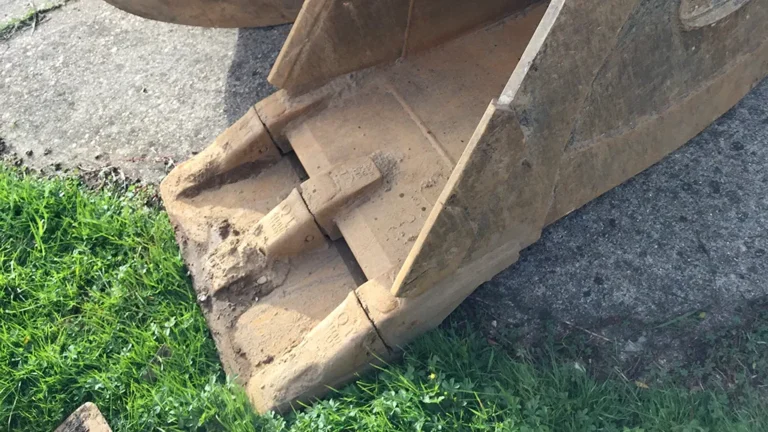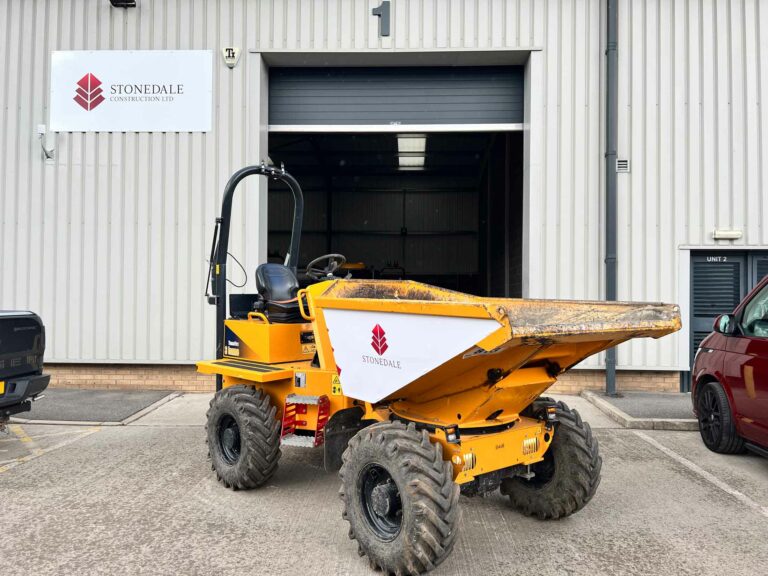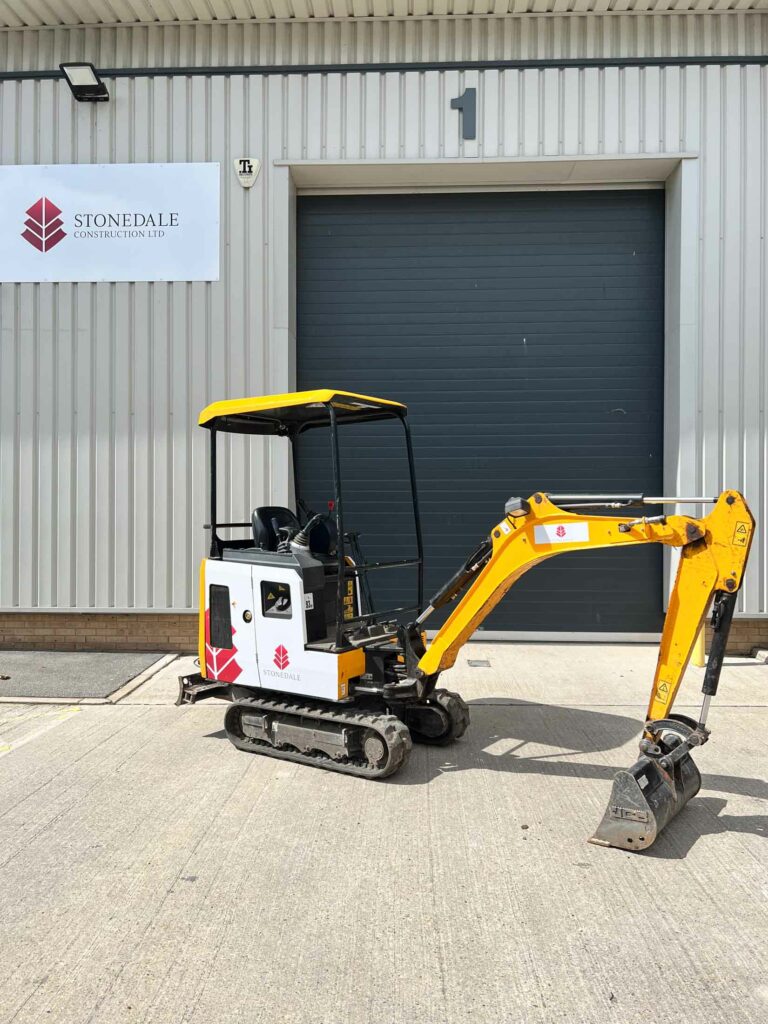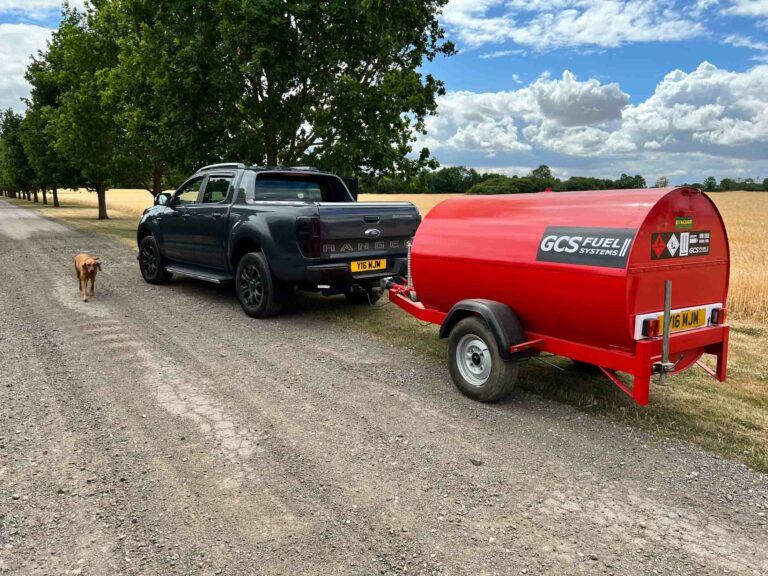Vacuum Excavation
Understanding Vacuum Excavation
Vacuum excavation is a modern and advanced method of digging that is faster, safer, and more precise than traditional digging methods such as backhoe excavation.
The process involves using a high-powered vacuum hose to remove dirt and debris.
The main benefits of vacuum excavation include its non-invasive nature, minimal risk of injury or damage, and timely project completion.
Vacuum excavation is also environmentally friendly and produces a higher density of water.
This method is ideal for completing excavation projects or uncovering small patches of underground areas to locate utilities.
Crews can choose between two types of vacuums: a fan or a positive displacement blower system. Most fan systems are lighter, less expensive, easier to operate, excavate quickly, and ideal for most applications.
At the same time, positive displacement blowers are generally slower but function at greater depths, which makes them suitable for heavy-duty excavation projects.
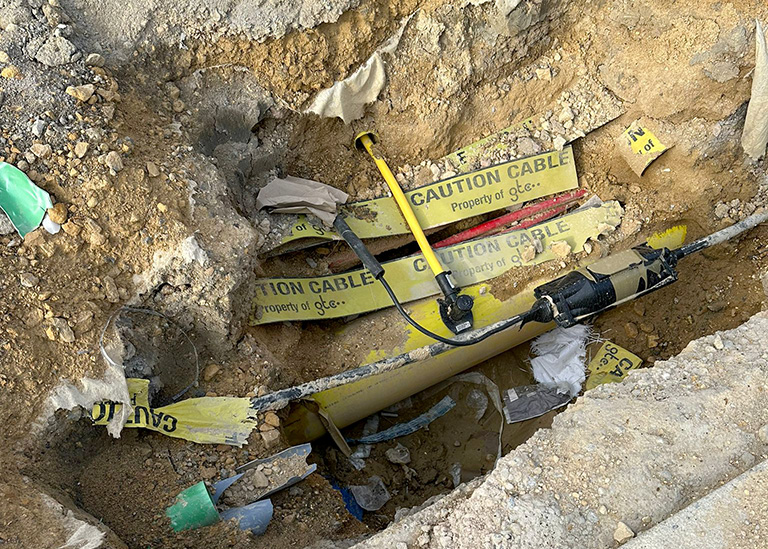
A vacuum excavation hole without causing any damage to the services.
Benefits of Vacuum/Suction Excavation
- Quicker: Vacuum excavation is generally much quicker than traditional excavation equipment or hand digging.
- Non-invasive: One of the main advantages of vacuum excavation is that it is non-invasive, meaning it is less likely to damage nearby structures or utilities.
- Less dust: Vacuum excavation produces less dust than traditional excavation methods, making it a cleaner option.
- Less spoil: Vacuum excavation produces less spoil, which means there is less material to dispose of.
- Reduced risk of contamination: Vacuum excavation minimises the risk of contamination because it is less likely to damage underground utilities.
- Environmentally friendly: Vacuum excavation is better for the environment because it produces less waste and is less likely to damage the surrounding area.
- Faster: With hydro excavation, the dirt is automatically vacuumed into a tank, which makes it faster to remove from the area.
Types of Vacuum Excavators Available for Hire
There are different types of vacuum excavators available for hire. Below are some of the common types:
Trailer-Mounted Vacuum Suction Excavators
These are compact vacuum excavators mounted on trailers and easily towed by pickup trucks. Operators use them for smaller excavation jobs and are often equipped with water-based digging systems.
Track-Mounted Vacuum Suction Excavators
Track mounts enhance the manoeuvrability and stability of these vacuum excavators on uneven terrain. They are suitable for larger excavation projects and can handle various soil conditions.
Dry Vacuum Suction Excavators
Dry vacuum excavators use high-powered suction to remove soil and debris without water. Operators often prefer to use them in areas that prohibit water use or where dry excavation is required.
Wet Vacuum Suction Excavators
Wet vacuum excavators use high-pressure water and suction to excavate soil. These machines effectively break up the compacted ground, and operators can use them in various soil conditions.
Specialised Suction Vacuum Excavators
Manufacturers tailor some vacuum excavators for specific purposes like potholing or utility locating. These specialised excavators may have additional features or attachments to meet job requirements.
When choosing a vacuum excavator for hire, it is essential to consider the specific needs of your project and select the best excavator. It would help if you considered factors like the size of the excavation area, soil conditions, and access constraints. Consulting with a vacuum excavation expert or rental company could help you determine the best type of vacuum excavator for your needs.
Overall, vacuum excavation is faster, cleaner, and more environmentally friendly than traditional excavation methods. It is also less invasive and reduces the risk of damage to nearby structures and utilities.
For a historical background of suction or vacuum excavators, please visit the following Wikipedia page: https://en.wikipedia.org/wiki/Suction_excavator
View our Plant News article on Discover Vacuum Excavators – Everything You Should Know
You’re invited to try plantclassifieds listing for free.
Locate Vacuum Excavation Services in Your Vicinity
- Plant Hire
- Plant Companies
- prev
- next
Diggermate Springfield 
- Diggermate
- 43 Morgan St
Pier Hydrovac: Lead Vacuum Specialist 
- Merseyside

